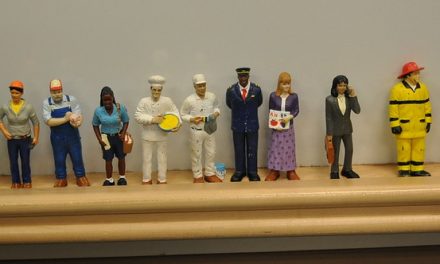Fellow CMT.com contributor Emily Reimer-Barry has already given a helpful roundup of the of our meeting with the Committee on Doctrine on the intellectual tasks of the New Evangelization. Go here for her write-up including details on speakers, links to other write-ups, and links to the presentations themselves. This past Tuesday, fellow attendee Ryan Topping relayed his experiences at First Things. In what follows I will relate some of my own experiences, but let me begin by setting the context for the event.
It is no secret that the American Catholic Church is deeply divided, and this division is present even with those who engage at highest levels of theological inquiry and exchange. The bishops who bear the responsibility of being the official teachers of the Church in American dioceses and in the various offices of the national conference, and many of those who research and teach theology in universities and colleges around the country, find themselves in a largely polarized and even distrustful relationship. The reasons are many, but much of the problem comes simply from the function of the roles of bishops and theologians. Academics are natural boundary-pushers who seek new insights and angles into difficult and complex questions. Indeed, we simply cannot succeed in our vocation if we do not think creatively. Bishops, though many are interested in creative thinking, are often primarily concerned with preserving and passing on the core of the faith in spirit of servant leadership. These roles are in some natural tension with each other (it was ever thus: Thomas Aquinas himself pushed boundaries in ways which ran afoul of the authorities of his day), and that tension is not likely to go away anytime soon.
Nor should it. Robust execution of these complementary roles is essential for maintaining a sturdy and nimble Church that can at once stay faithful the apostolic tradition while at the same time listening to the voice of the Holy Spirit today and responding to contemporary trends and issues. But the sad fact of the matter is that, in the United States at least, the roles of bishops and many theologians are too often being performed in isolation from each other. Indeed, not only are many existing relationships damaged, but many times a relationship doesn’t exist at all. Indeed, some theologians I know never even expect to even meet a bishop. The latest public example of this problem is the Committee on Doctrine’s condemnation of Elizabeth Johnson’s book Quest for the Living God. Unfortunately, this happened with no personal communication at all.
The disastrous fallout of this situation is a Church which has a leadership that has too many people disconnected from the best historical retrievals of the tradition and the most creative and convincing applications of that tradition to the complexity of our modern world. But we also have a theological academy that has too many members disconnected from the structures of the Church and, at least in some cases, from some of the core of the tradition. There are, however, reasons to hope that this situation is in the process of changing.
The last decade or so has produced a generation of American theologians that—while complex thinkers who cannot be boxed as somehow ‘of this school’ or ‘rejecting that school’—are disproportionately committed to understanding the complex issues of the Church and world through something other than a polarized, isolating lens. Unwilling to sacrifice our creative role in pushing the boundaries of theology in meeting contemporary issues, many are at the same time committed to having a relationship with the institutional Church and, in particular, forming new relationship with bishops. Initiatives like the Catholic Conversation Project have involved theologians reaching out to bishops, but in another sign of hope, the Committee on Doctrine has also reached out to pre-tenure theologians by inviting them to a September meeting in Washington to discuss the New Evangelization.
There were several things that were very positive about the meeting, but there were also several things that could have been improved. Let’s start with the important positives:
- The initiative was conceived by Cardinal Wuerl as an outreach designed specifically to work on the relationship between bishops and theologians. Having been planned well before the spring of 2011, it was not simply a reaction to the Elizabeth Johnson affair.
- Because we were invited on a first come, first serve basis, the group ended up being quite diverse. Indeed, the event had theologians from places like Boston College, Fordham, Catholic University of America, Ave Maria, and various seminaries across the country. These were not hand-picked, lap-dog theologians.
- Several important figures of the institutional Church attended and some gave us some important face time. There were talks from Cardinal DiNardo and Archbishop DiNoia. Other members of the committee on doctrine, including Cardinal Wuerl, sat at tables with us and listened to some of the talks. Fr. Weinandy consistently engaged in conversation at the hotel bar after the formal events, and that first evening I spoke with Cardinal DiNardo for a good twenty minutes over a cocktail. These moments were at the heart of what the event was designed to do.
- We were given the important sense that the institutional Church does not wish to intervene in theological disputes and would welcome the theological community resolving our issues internally.
Unfortunately, but unsurprisingly given that it was a first meeting, there are several ways the event could have been improved:
- With the exception of DiNardo and Weinandy, no other members of the COD made an attempt to meet us after the sessions to build personal relationships. None stayed in the audience for the only session that was designed for open discussion. Despite the good will that was clearly present, the fact that we were not able to take full advantage of the opportunity to build personal relationships meant that we were not able to build trust. Until this happens, many important issues cannot be honestly or forthrightly engaged.
- An academic theologian’s experience as both a researcher and teacher makes her an important resource for the New Evangelization, but there was little effort made to elicit our insights. Instead, we spent most of our time listening to long talks. And with one or two exceptions, the talks were presented from a top-down perspective that did not foster interaction or dialogue. Several of the speakers appeared to engage as if we were the students and they were the teacher. Perhaps the speakers were victims of the structure of the event, but this is not best model for forming new relationships with fellow experts in the topics under discussion. Happily, Cardinal Wuerl mentioned during a break that next time we do this it might be a good idea to have more roundtable discussion.
- Some presenters decided not to talk about the New Evangelization at all. And though many talks had good and important content, it was not clear that diverse perspectives of the Church’s teaching were valued or even addressed. Essential tools of the New Evangelization, like the social teachings of the Church (and the anthropological insights which support them), were not engaged. This problem serves as a microcosm of something that is amiss in Church structures more broadly. Largely concerned with matters that have to do with the nuts and bolts of running a diocese or other office, many bishops have little time to spend in study of the latest theological attempts to deal with contemporary issues. They often rely on the advice and counsel of others to keep them so informed. But the fractured relationship between bishops and theologians has produced a leadership that often does not get the essential benefit of diverse perspectives.
But it takes time to turn a large ship. This September’s meeting was an essential first step, and there are reasons to be hopeful that more will be taken. John Cavadini helpfully suggested that the New Evangelization might begin by acknowledging that we need to evangelize ourselves. As we continue to build relationships—and trust—I believe that we will continue to make progress toward becoming the kind of community that Jesus prayed might be one as God is one. A community that holds a plurality of voices in unity.
Thank you to the Committee on Doctrine for organizing the event and to the Knights of the Columbus for funding it. We are looking forward to future opportunities to have genuine dialogue.




Thanks for your post, Charlie! My experience was very similar to yours. I too see this as an important first step, and I think your point about the need to build trust is especially important.
I read with special interest Cardinal Wuerl’s recent essay in America “A New Relationship: Bishops, Theologians, and the New Evangelization,” 9/26/11), and noted that he talked about “constructive collaboration” between bishops and theologians. But his description of the role of theologians in the new evangelization does not speak of creative boundary-pushing. “In the case of theology,” he writes, “it is precisely the truths of faith, taught by the magisterium, that constitute the subject matter of their work” (13). Theologians’ contributions “are most evident when the explorations of theology build upon the insights of previous generations and are fruitful only when they begin from the known truths of received revelation” (12).
So it seems that there are different understandings of “theology” and “theologian” under discussion. Maybe future meetings could provide a forum for engagement– real back and forth conversation– about how we perceive our roles as teachers and scholars (and I do not presume that all young theologians would speak with one voice here) in service to the People of God.